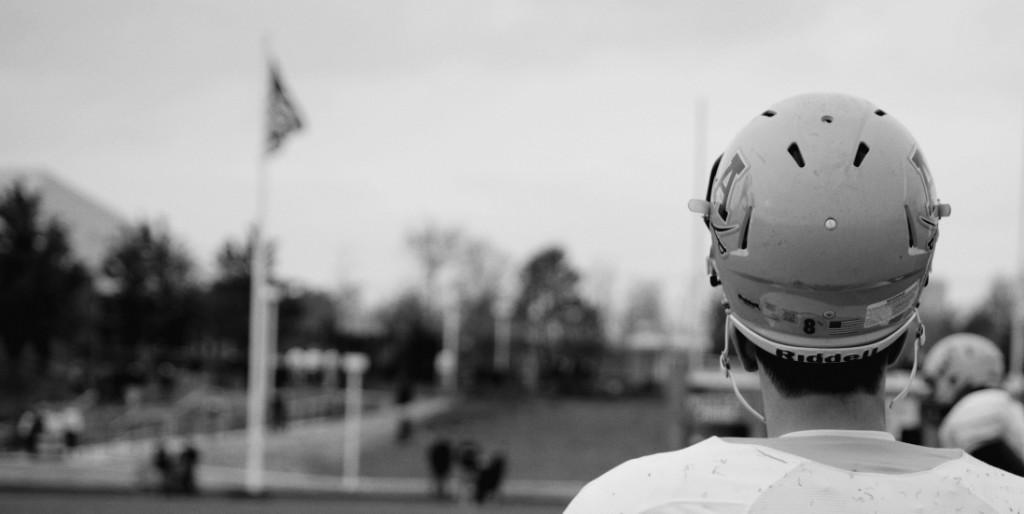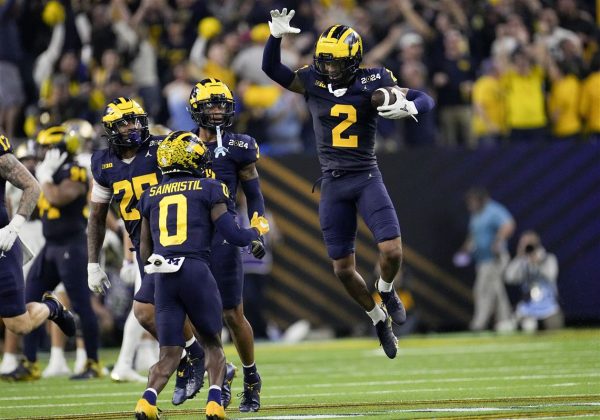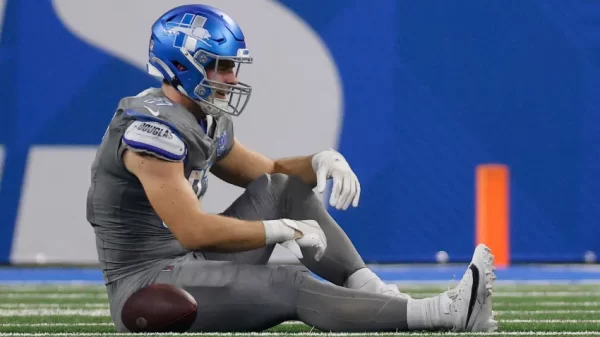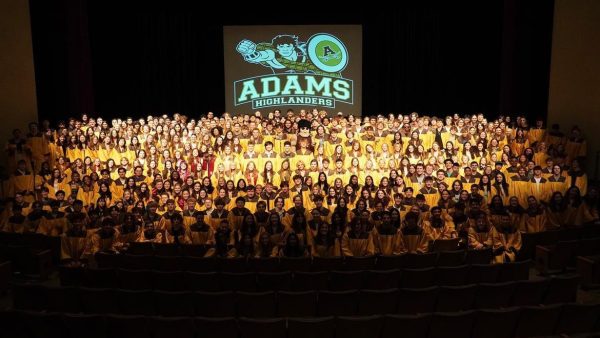Behind the Picks
A football player watches the game from afar.
The coach just cut you from the team. You’re feeling angry and disappointed. You’re confused-why me? You practiced all summer and you know you’re better than that freshman who just made it above you. The truth is that it may not be about how well you think you are; it’s how well the coaches think you are.
Anyone at Adams who hasn’t made the school team knows this feeling of defeat. Some students think it’s because the chosen player played for a travel team or the coach likes that player better. Many students agree that there is a bias in selecting players, and to some extent, this belief is true.
It is virtually impossible for coaches to be completely unbiased. All coaches want the best of the best for their teams; however, many times their decisions seem a bit skewed.
“If I’m stuck between two kids, and I’ve had one in class, and I know he’s a hard worker, I’ll take him over the other kid,” Adams baseball coach, Mr. David Lovalvo said.
His method is good, but it causes students to believe that the coach is practicing favoritism when he’s simply using the resources available to him to make the best team possible. This method, while making sense, is somewhat biased in itself because in most cases you can’t choose your teachers, and if that’s the deciding factor, this is what kick starts the rumor of the bias in a coach’s selection.
Parents always love to get involved with their kid’s sports. Some will just come out to support their child and watch them score a goal. Others like to take it a little farther. Whether it be running the concession stand, announcing the games, or simply giving back to the program, parents are always willing to help. While not all parents have the luxury of being able to help out, this help does seem to have an impact on player selection.
“If you’re parents help with charity, the coaches will favor you more,” Junior Elizabeth Glassford said.
There’s no way to know if this belief is 100 hundred percent true, but there are other factors that are considered bias in the Adams’ sports society.
Some students say playing for a certain travel team outside of school is also an influence. When students are able to make a travel team, coaches assume they are the best. However, just because they play Amateur Athletic Union (AAU) or Federation doesn’t mean they are superior to the ones who don’t participate in travel sports.
“If you play for the bulldogs, you’re going to make the baseball team,” a sophomore boy, who would rather not be named, said. Many students who are on the team play for a travel team, but not all of the players are very good.
Another issue that leads student to believe that there is a bias is sibling relations on the same team. Many younger siblings make a higher ranked team when their older sibling is on the team as well. People assume it’s because the coach liked the older sibling, when in reality, that isn’t true.Usually parents aren’t sure how to help the kids the first time around, but after their second, third, or fourth time around, they are pros at figuring out what the coaches are looking for and how to make their kids the best.
However, there are coaches who do use the sibling combinations. They will automatically pull up a freshman player to varsity just because they know the older sibling.
Students who get cut always have something negative to say about the coaches and their picks. Coaches say they want the best for their team and students say the coaches are biased. Nonetheless, the sports program here at Adams is a great one with very talented students and coaching staff.






